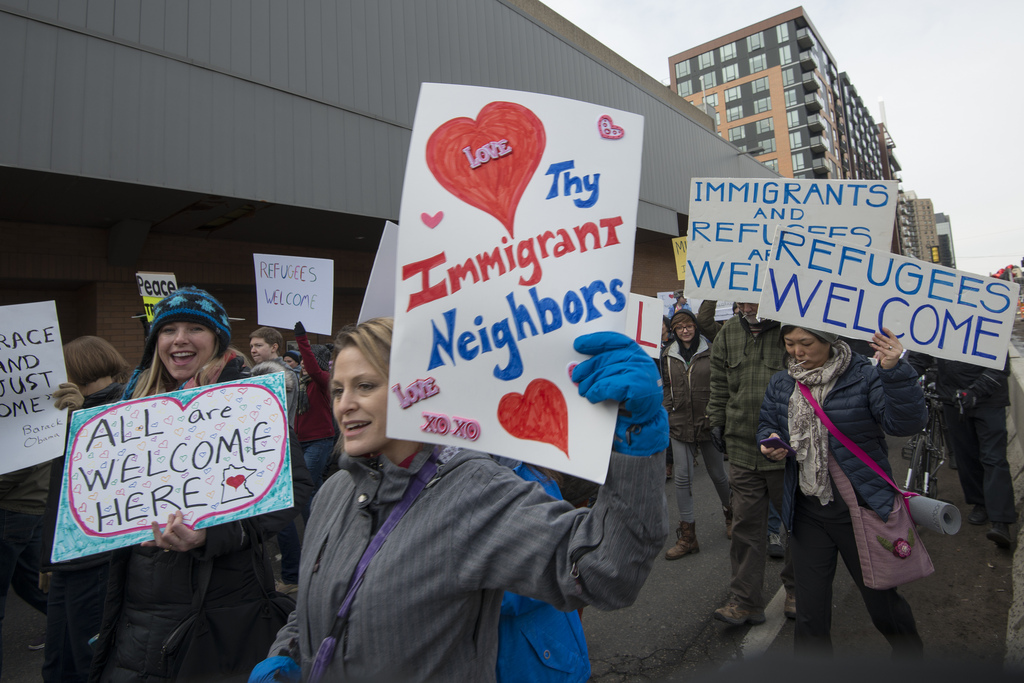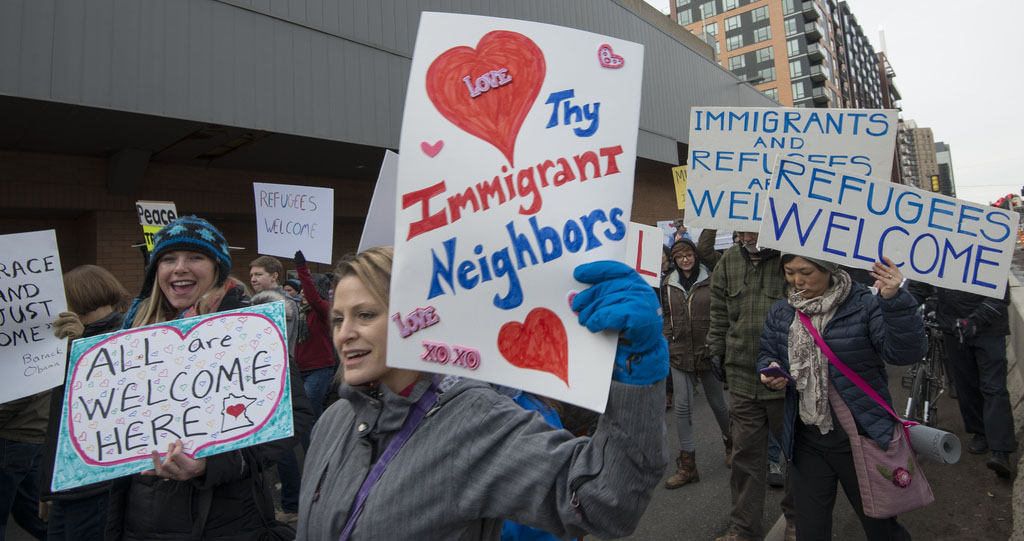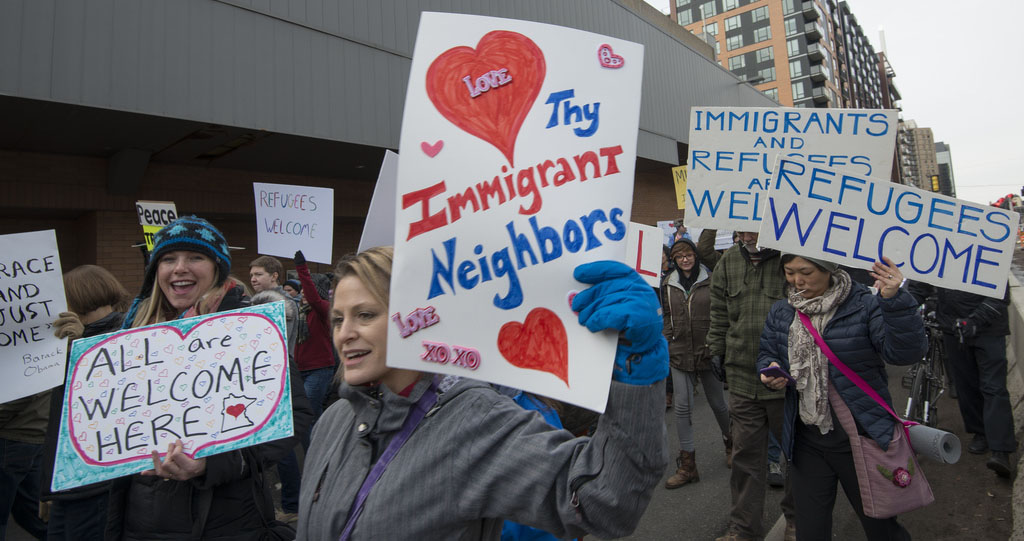This essay originally appeared in The Washington Post.

I’m an American. More specifically: I’m a Texan, an entrepreneur and I’m pursuing a PhD in mathematical biology, focusing on better understanding biological data and disease. I hope to someday use math to further develop research that will cure diseases, like cancer, that take lives far too soon. I consider my work a professional calling and a scientific challenge, but also an obligation: to pay back the country that gave me the opportunity to pursue my work in the first place.
I’m also one of the more than 800,000 “dreamers” whose status was put back in limbo by the Trump administration’s decision to rescind DACA — and I just hope I’ll eventually get the chance to pay my country back, and that one day, my government will call me an American, too.
Like all beneficiaries of DACA, or Deferred Action for Childhood Arrivals, I was brought to the United States as a child — my parents moved from Lahore, Pakistan, to Fort Worth when I was 11. They made the courageous decision to leave the only home that they’d known because it was clear Lahore was no longer a safe place to raise my sisters and me. They chose Fort Worth because my grandparents owned a business there and lived here as American citizens.
My family and I were granted U.S. visas through proper channels, but my grandfather passed away before we arrived and my grandmother died before we could get green cards. We no longer had a family sponsor, but we stayed in Texas because it was too dangerous to go back to Pakistan. Not long after we left, terrorists bombed the Lahore apartment building we lived in. They destroyed the park we went to as children, along with the market where my mom and I once bought groceries. Young women my age who I knew as a child, who still live in Pakistan, don’t know what it’s like to have the limitless educational possibilities like the ones America has to offer. Given the choice, no parent would take their daughters back to such a place, and my parents were no different. But it wasn’t just that we were hesitant to return to Pakistan, it was that my parents, my sister and I quickly came to think of America as our home, and ourselves as Americans.
What is #DACA? Here’s all you need to know about the immigrant program Trump is ending https://t.co/pg4Ueruqrb pic.twitter.com/Bqz6NaJaci
— Al Jazeera English (@AJEnglish) September 7, 2017
When President Barack Obama wrote on Facebook Tuesday that dreamers “are Americans in their hearts, in their minds, in every single way but one: on paper,” and that we “want to start new businesses, staff our labs, serve in our military, and otherwise contribute to the country we love,” I felt like he understood exactly how I feel about my country.
Over the last few days, it’s been heartening that so many people, all across the political spectrum, have been supportive of, and empathized with, the situation in which we dreamers find ourselves. But empathy for our circumstances isn’t the only reason to support DACA. I also hope our fellow Americans see that America benefits by having us here.
According to a recent Center for American Progress survey, more than 90 percent of DACA recipients are working — 97 percent are either employed or in school. Seventy-two percent of the top 25 Fortune 500 companies employ DACA beneficiaries. Many, like me, are working and going to school. We contribute billions to the overall U.S. gross domestic product. We pay taxes. We’ve submitted to strict background checks to gain and renew our status, making us some of the most “vetted” members of society.
The first time I went through the DACA renewal process in 2014, I didn’t receive renewal on time. I traveled to the One Young World Summit in Ireland, and I couldn’t file for renewal until I returned, which then was less than 120 days before my status was due to expire. I lost my job and struggled to pay rent. Now that DACA — which allowed me to work legally and attend school — will be rescinded, I and others like me are counting on Congress to put us back on the path to remaining permanently in the land we call home. If they don’t, I couldn’t teach my students, or legally do any job, for that matter. I wouldn’t have the resources to pursue my research. And I’d have nowhere to go. All I — all we — want is opportunity, and for our country to recognize us as the proud Americans that we already are.
My father once wrote to me: “I am always saying from the bottom of my heart, ‘God Bless America.’” That we are blessed to be here. And once you know how fortunate we feel to have come to America, how could anyone doubt that what dreamers want is to contribute to this country in any way we can?
For me, the maxim that America is “a nation of immigrants” isn’t a slogan — I’ve lived the American Dream by being able to find my home here. And I have faith that, in the end, Americans will find a way to embrace the dreamers and officially make America our home. Though I’m not yet an American according to the law, I’ve been an American in my heart since I came here; and I’ll continue working to make my country the best it can be.
Saba Nafees is a Graduate Teaching Assistant and Researcher at Texas Tech University. She is currently pursuing her PhD in Mathematical Biology.


